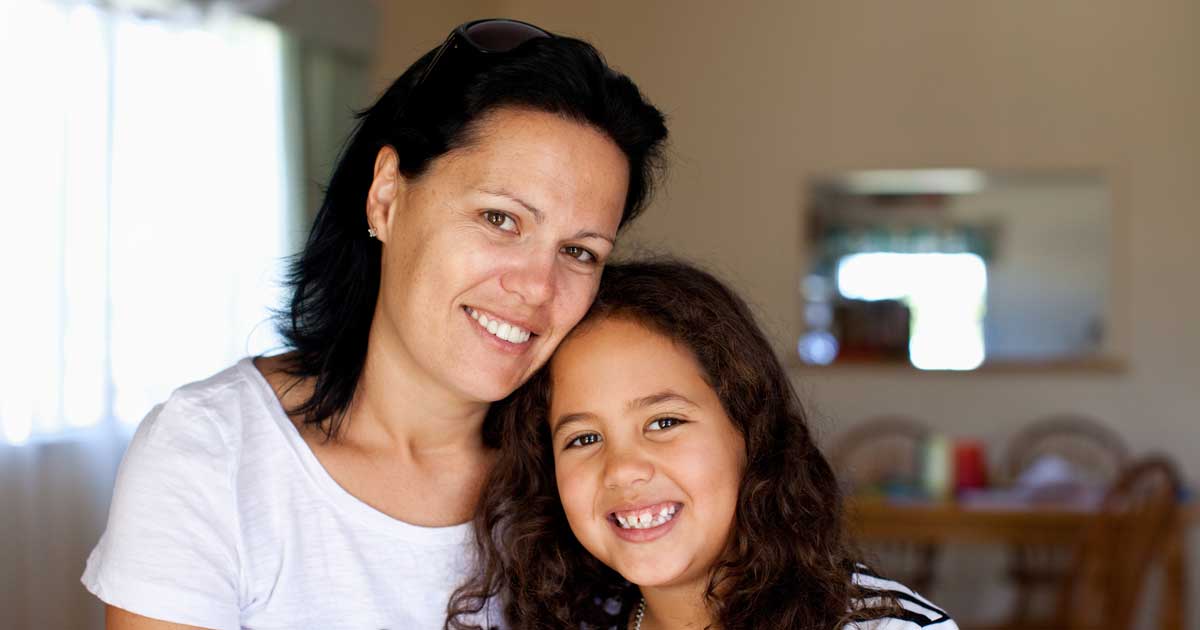
The National Suicide Prevention Lifeline is now: 988 Suicide and Crisis Lifeline
988 has been designated as the new three-digit dialing code that will route callers to the National Suicide Prevention Lifeline. While some areas may be currently able to connect to the Lifeline by dialing 988, this dialing code will be available to everyone across the United States starting on July 16, 2022.
Suicide & Crisis Lifeline: The Lifeline provides 24-hour, toll-free, and confidential support to anyone in suicidal crisis or emotional distress. Connect with a skilled, trained counselor at a crisis center in your area. Support is available in English and Spanish and via live chat.
Disaster Distress Hotline: People affected by any disaster or tragedy can call this helpline, sponsored by the Substance Abuse and Mental Health Services Administration, to receive immediate counseling. Call or text 1-800-985-5990 to connect with a trained professional from the closest crisis counseling center within the network.
Veterans Crisis Line: This helpline is a free, confidential resource for Veterans of all ages and circumstances. Call 1-800-273-8255, press “1”; text 838255; or chat online to connect with 24/7 support.
Crisis Text Line: Text HELLO to 741741 for free and confidential support 24 hours a day throughout the U.S.
Crisis Safety Plan: This form is a safety plan template to help those experiencing self-harm and suicidal thoughts.
Warm Line: A warmline is a phone number family members or people with lived experience can call to have a conversation with someone who can provide support during hard times. Whether you’re in crisis or just need someone to talk to, a warmline can help. Warmlines are staffed by trained peers who have been through their own mental health struggles and know what it’s like to need help.
How can I get help/support for borderline personality disorder (BPD)?
Note: NAMI volunteers are not medical or mental health professionals, and we cannot offer medical or mental health advice. The material outlined below is informational and we hope that it helps provide guidance toward getting support.
You may wish to consult the Borderline Personality Disorder page of NAMI’s website where you will find information on the condition, current treatments, ways to support recovery, and links to NAMI Discussion Groups that focus on topics related to Borderline Personality Disorder (create a NAMI.org account to participate in NAMI discussion groups).
The following resources may be of help:
- National Education Alliance for BPD provides resources, videos, and information, including“Family Connections™” Program, a free 12-week virtual course that provides education, skills training and support for loved ones of people living with borderline personality disorder, emotion dysregulation, or borderline personality disorder/emotion dysregulation traits.
- Borderline Personality Disorder Resource Center offers information on borderline personality disorder and resources for families and people living with the condition, including a provider locator that is searchable by state and type of insurance accepted.
- Stop Walking on Eggshells provides information about borderline personality disorder, coping tips, and other resources.
- Out of the FOG provides information, resources and support for caregivers and loved ones of individuals living with borderline personality disorder.
- Emotions Matter is a nonprofit organization that offers programs, education and resources for individuals and families impacted by borderline personality disorder.
- Dialectical Behavior Therapy (DBT) is a cognitive behavioral therapy developed by Marsha M. Linehan, Ph.D., a researcher at the University of Washington and founder of BTECH, to treat persons with borderline personality disorder. For a directory of treatment teams with at least one member who has completed either Dialectical Behavior Therapy Intensive Training or Dialectical Behavior Therapy Foundational Training through BTECH, visit www.behavioraltech.org.
- DBT-Linehan Board of Certification provides a therapist locator to search for clinicians who have met certification standards to practice Dialectical Behavior Therapy, a cognitive behavioral therapy developed by Marsha M. Linehan, Ph.D., a researcher at the University of Washington and founder of BTECH, to treat persons with borderline personality disorder; search the directory by city, state or zip code.
Life might feel like its an unrelenting crisis or emergency at times.
If you have a diagnosis of borderline personality disorder and are feeling suicidal, self-injurious, or self-destructive, the good news is that there are people who are willing to help.
Whatever you are doing right now, stop and commit to keeping yourself safe and alive for the next hour.
I’m serious. Set the timer on your phone for 60 minutes. Promise yourself that you won’t make any problems worse during that time. The truth is that even intense emotions and urges can change within an hour or two. You don’t have to add to your pain or trauma. You don’t have to hurt others.
Letting people know that you need help is always a smart decision. Keep telling others until they listen.
Suicide Prevention Lifeline
988
Warm Lines
These are peer-run organizations and may not be available 24/7.
Crisis Text Line
If you can’t talk, text.
Samaritans NYC
1-212-673-3000
Veterans Crisis Line
1-800-273-8255 (Press 1) or text 838255
RAINN
Sexual assault hotline
1-800-656-4673
National Alliance on Mental Illness (NAMI) Crisis Text Line
Text 741741
Again, if you can’t talk, text.
Outside of the United States? Check out these international resources from Unsuicide.
If you are looking for a dialectical behavior therapy (DBT) therapist, please check out this list of qualified mental health professionals through Behavioral Tech’s web site.
Need a book to read right now? Get a Kindle version of How I Stayed Alive When My Brain Was Trying to Kill Me: One Person’s Guide to Suicide Prevention or I can recommend Stronger Than BPD: The Girl’s Guide to Taking Control of Intense Emotions, Drama, and Chaos Using DBT.
If reading is too difficult right now, think about listening to an audio book. I love good books like Calming the Emotional Storm by DBT therapist Sheri Van Dijk.
Diagnosis
Personality disorders, including borderline personality disorder, are diagnosed based on a:
- Detailed interview with your doctor or mental health provider
- Psychological evaluation that may include completing questionnaires
- Medical history and exam
- Discussion of your signs and symptoms
A diagnosis of borderline personality disorder is usually made in adults, not in children or teenagers. That’s because what appear to be signs and symptoms of borderline personality disorder may go away as children get older and become more mature.
Treatment
Borderline personality disorder is mainly treated using psychotherapy, but medication may be added. Your doctor also may recommend hospitalization if your safety is at risk.
Treatment can help you learn skills to manage and cope with your condition. It’s also necessary to get treated for any other mental health disorders that often occur along with borderline personality disorder, such as depression or substance misuse. With treatment, you can feel better about yourself and live a more stable, rewarding life.
Psychotherapy
Psychotherapy — also called talk therapy — is a fundamental treatment approach for borderline personality disorder. Your therapist may adapt the type of therapy to best meet your needs. The goals of psychotherapy are to help you:
- Focus on your current ability to function
- Learn to manage emotions that feel uncomfortable
- Reduce your impulsiveness by helping you observe feelings rather than acting on them
- Work on improving relationships by being aware of your feelings and those of others
- Learn about borderline personality disorder
Types of psychotherapy that have been found to be effective include:
- Dialectical behavior therapy (DBT). DBT includes group and individual therapy designed specifically to treat borderline personality disorder. DBT uses a skills-based approach to teach you how to manage your emotions, tolerate distress and improve relationships.
- Schema-focused therapy. Schema-focused therapy can be done individually or in a group. It can help you identify unmet needs that have led to negative life patterns, which at some time may have been helpful for survival, but as an adult are hurtful in many areas of your life. Therapy focuses on helping you get your needs met in a healthy manner to promote positive life patterns.
- Mentalization-based therapy (MBT). MBT is a type of talk therapy that helps you identify your own thoughts and feelings at any given moment and create an alternate perspective on the situation. MBT emphasizes thinking before reacting.
- Systems training for emotional predictability and problem-solving (STEPPS). STEPPS is a 20-week treatment that involves working in groups that incorporate your family members, caregivers, friends or significant others into treatment. STEPPS is used in addition to other types of psychotherapy.
- Transference-focused psychotherapy (TFP). Also called psychodynamic psychotherapy, TFP aims to help you understand your emotions and interpersonal difficulties through the developing relationship between you and your therapist. You then apply these insights to ongoing situations.
- Good psychiatric management. This treatment approach relies on case management, anchoring treatment in an expectation of work or school participation. It focuses on making sense of emotionally difficult moments by considering the interpersonal context for feelings. It may integrate medications, groups, family education and individual therapy.
Medications
Although no drugs have been approved by the Food and Drug Administration specifically for the treatment of borderline personality disorder, certain medications may help with symptoms or co-occurring problems such as depression, impulsiveness, aggression or anxiety. Medications may include antidepressants, antipsychotics or mood-stabilizing drugs.
Talk to your doctor about the benefits and side effects of medications.
Hospitalization
At times, you may need more-intense treatment in a psychiatric hospital or clinic. Hospitalization may also keep you safe from self-injury or address suicidal thoughts or behaviors.
Recovery takes time
Learning to manage your emotions, thoughts and behaviors takes time. Most people improve considerably, but you may always struggle with some symptoms of borderline personality disorder. You may experience times when your symptoms are better or worse. But treatment can improve your ability to function and help you feel better about yourself.
You have the best chance for success when you consult a mental health provider who has experience treating borderline personality disorder.
More Information
- Psychotherapy
There is a problem with information submitted for this request. Review/update the information highlighted below and resubmit the form.
From Mayo Clinic to your inbox
Sign up for free, and stay up to date on research advancements, health tips and current health topics, like COVID-19, plus expertise on managing health.
ErrorEmail field is required
ErrorInclude a valid email address
To provide you with the most relevant and helpful information, and understand which information is beneficial, we may combine your email and website usage information with other information we have about you. If you are a Mayo Clinic patient, this could include protected health information. If we combine this information with your protected health information, we will treat all of that information as protected health information and will only use or disclose that information as set forth in our notice of privacy practices. You may opt-out of email communications at any time by clicking on the unsubscribe link in the e-mail.
Thank you for subscribing!
You’ll soon start receiving the latest Mayo Clinic health information you requested in your inbox.
Sorry something went wrong with your subscription
Please, try again in a couple of minutes
Coping and support
Symptoms associated with borderline personality disorder can be stressful and challenging for you and those around you. You may be aware that your emotions, thoughts and behaviors are self-destructive or damaging, yet you feel unable to manage them.
In addition to getting professional treatment, you can help manage and cope with your condition if you:
- Learn about the disorder so that you understand its causes and treatments
- Learn to recognize what may trigger angry outbursts or impulsive behavior
- Seek professional help and stick to your treatment plan — attend all therapy sessions and take medications as directed
- Work with your mental health provider to develop a plan for what to do the next time a crisis occurs
- Get treatment for related problems, such as substance misuse
- Consider involving people close to you in your treatment to help them understand and support you
- Manage intense emotions by practicing coping skills, such as the use of breathing techniques and mindfulness meditation
- Set limits and boundaries for yourself and others by learning how to appropriately express emotions in a manner that doesn’t push others away or trigger abandonment or instability
- Don’t make assumptions about what people are feeling or thinking about you
- Reach out to others with the disorder to share insights and experiences
- Build a support system of people who can understand and respect you
- Keep up a healthy lifestyle, such as eating a healthy diet, being physically active and engaging in social activities
- Don’t blame yourself for the disorder, but recognize your responsibility to get it treated
Preparing for your appointment
You may start by seeing your primary care doctor. After an initial appointment, your doctor may refer you to a mental health provider, such as a psychologist or psychiatrist. Here’s some information to help you prepare for your appointment.
What you can do
Before your appointment, make a list of:
- Any symptoms you or people close to you have noticed, and for how long
- Key personal information, including traumatic events in your past and any current major stressors
- Your medical information, including other physical or mental health conditions
- All medications you take, including prescription and over-the-counter medications, vitamins and other supplements, and the doses
- Questions you want to ask your doctor so that you can make the most of your appointment
Take a family member or friend along, if possible. Someone who has known you for a long time may be able to share important information with the doctor or mental health provider, with your permission.
Basic questions to ask your doctor or a mental health provider include:
- What’s likely causing my symptoms or condition?
- Are there any other possible causes?
- What treatments are most likely to be effective for me?
- How much can I expect my symptoms to improve with treatment?
- How often will I need therapy sessions and for how long?
- Are there medications that can help?
- What are the possible side effects of the medication you may prescribe?
- Do I need to take any precautions or follow any restrictions?
- I have these other health conditions. How can I best manage them together?
- How can my family or close friends help me in my treatment?
- Do you have any printed material that I can take? What websites do you recommend?
Don’t hesitate to ask questions during your appointment.
What to expect from your doctor
A doctor or mental health provider is likely to ask you a number of questions. Be ready to answer them to save time for topics you want to focus on. Possible questions include:
- What are your symptoms? When did you first notice them?
- How are these symptoms affecting your life, including your personal relationships and work?
- How often during the course of a normal day do you experience a mood swing?
- How often have you felt betrayed, victimized or abandoned? Why do you think that happened?
- How well do you manage anger?
- How well do you manage being alone?
- How would you describe your sense of self-worth?
- Have you ever felt you were bad, or even evil?
- Have you had any problems with self-destructive or risky behavior?
- Have you ever thought of or tried to harm yourself or attempted suicide?
- Do you use alcohol or recreational drugs or misuse prescription drugs? If so, how often?
- How would you describe your childhood, including your relationship with your parents or caregivers?
- Were you physically or sexually abused or were you neglected as a child?
- Have any of your close relatives or caregivers been diagnosed with a mental health problem, such as a personality disorder?
- Have you been treated for any other mental health problems? If yes, what diagnoses were made, and what treatments were most effective?
- Are you currently being treated for any other medical conditions?



